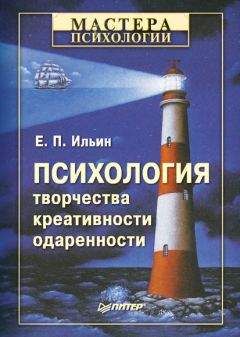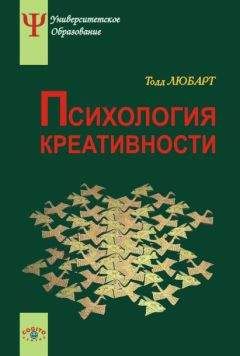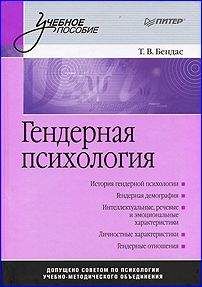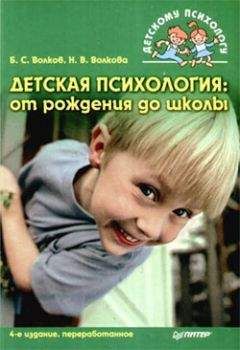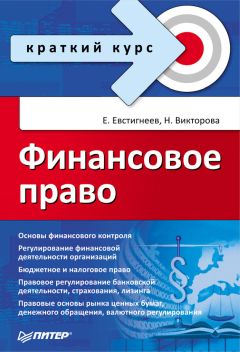Psychology. 1968. V. 138.
Halpern D. F. Sex differences in cognitive abilities. Mahwah. NY. L., Lawrence Erlbaum Ass. Publ. 2000.
Harpatz J. Asymmetry of hemispheric function and creativity: An empirical examination // Journal
Creative Behavior. 1990. V. 24. № 3. P. 161. Harrington D. M., Block J. H., Block J. Testing aspects of Carl Rodger's theory of creative environments in
young adolescents // Journal of Personality and Social Psychology. 1987. V. 52. P. 851–856. Heller K. A. Evaluation of programs for the gifted // M. W. Katzko, F. J. Monsk (eds.). Nurturing Talent,
individual needs and social ability. The 4-th conference of ECHA. Assen, Van Gorcum. 1995. P. 264–268. Heller K. A. Psychologische Probleme der Hochbegabungsforschung // Zeitschrift fur Entwicklungspsychologie
and Padagogische Psychologie. 1986. Bd. XVIII. Heft 4. S. 335–361. HellerK. A., GeislerH.J. Kognitiver Fahigkeits. Test fur 1. Bis 3. Klassen (KFT 1–3). Weinheim: Beltz. 1983. Henley R. Distinguishing insight from intuition // Journal of Consciousness Studies. 1999. V. 6. № 2–3.
P. 287–290.
Hennessey B. A., Amabile T. M. The conditions of creativity // R.J.Sternberg (ed.). The nature of creativity:
Contemporary psychological perspectives. Cambridge. England. Cambridge University Press. 1988. Hes E. Attitude and puple size // Scientific American. 1965. P. 212.
Hilgard E. R., Edgren R. D., Irvine R. P. Errors in transfer following learning with understanding: further studies with Katona's cardtrick experiments // J. exper. Psychol. 1954. V. 47. P. 457–464.
Hill O. W. Intuition: Inferential heuristic or epistemic mode? // Imagin. Cognition and Person. 19871988. V. 79. № 2. P. 137–154.
Hlavsa J. Pojmova struktura tvurciho intelektu // Cheskoslovenska psychologie. 1972. V. 16. № 2.
Hogarth R. M. Educating intuition. Chicago, IL. University of Chicago Press. 2001.
Horny K. Our inner conflicts. NY. 1966.
Howard-Jones P. A., Myrray S. Ideational Productivity, Focus of Attention and Context // CreativityResearch
Journal. 2003. V. 15. № 2–3. P. 153–166. Howe M. J. A. What can we learn from the lives of genuises? // J. Freeman, P. Span, H. Wagner (eds.).
Actualizing talent: a lifelong challenge. Cassell. 1995. Hull C. L. Hypnosis and Suggestibility an Experimenal Approach. NY. Appleton – Century – Crofts. 1933. Isen A. M. Positive affect and decision making // M. Lewis, J. M. Haviland (eds.). Handbook of emotions.
NY. Guilford. 1993. P. 261–277. Isen A. M. On the relstionship between affact abd creative problem solving // S. Russ (ed.). Affect,
creative experience and psychological adjustmen. Philadelphia: Taylor and Francis. 1999. P. 3–17. Isen A. M. Positive affect as a sourse of human strength // L. G. Aspinwall, U. M. Staudinger (eds.).
A psychology of human strengths: Fundamental questions and future directions for a positive
psychology. Washington, DC. American Psychological Association. 2003. P. 179–195. Isen A. M., Daubman K. A. The influence of affect on categorization // Journal of Personality and Social
Psychology. 1984. V. 47. P. 1206–1217. Isen A. M., Daubman K. A., Nowicki G. P. Positive affect facilitates creative problem solving // Journal of
Personality and Social Psycholoogy. 1987. V. 52. P. 1122–1131. Isen A. M., Johnson M. M., Mertz E., Robinson G. F. The influence of positive affect on the unusualness of
word associations // Journal of Personality and Social Psychology. 1985. V. 48. P. 1413–1426. Jacobs J. E, Weisz V. Gender stereotypes: Implications for gifted education // Roeper Review. 1994. V. 16.
№ 3. P. 152–155. Jamison K. Touched with Fire. NY. Free Press. 1994.
Jarvick I. R., Chadwicki S. B. Schizophrenia and survival // M. Hummer, K. Salzinger, S. Sutton (eds.).
Psychopathology. NY. Wiley. 1973.
Jekobson E. The Electrophysiology of Mental Activities // American Journal of Psychology. 1932. V. 44. Jones T. P. Creative learning in perspective. London. 1972.
Johnson W. L., Johnson A. M. A third-order component analysis of the Myers-Briggs Type Indicator //
Educational and Psychological Measurement. 1998. V. 59. № 5. P. 820–832.
Jonsson P., Carlsson I. Androgyny and creativity: A study of relationship between a balanced sexrole and creative functioning // Scand. Journal Psychology. 2000. V. 41. P. 269–274.
Johnston W. L., Daumer C. R. Intuitive development: Communication in the nineties // Publish. Personal Management. 1993. V. 22. № 2. P. 257–269.
Karlson Y. L. Inheritance of creative intelligence. Chicago. 1978. P. 138.
Kasof J. Creativity and breadth of attention // Creativity Research Journal. 1997. V. 10. № 4. P. 303–315. Kaufmann F. The 1964–1968 Presidential Scholars: A follow-up study // Exceptional Children. 1981.
V. 48. № 2.
Kerr B. A. Smart girls, gifted women: Special guidance concerns // Roeper Review. 1985. V. 8. P. 30–33. Kihlstrom J. F., Shames V. A., DorfmanJ. Intimations of memory and thought // L. M. Reder (ed.). Implicit
memory and metacognition. Mahwah. NY. Erlbaum. 1996. P. 1–23. Kirton M. J. Adaptors and Innovators. London. Routledge. 1994.
Kleemeier N. W. Intellectual change in the senium // Proc. of the social statistics. Section of the Americ.
Statist. Associative. NY. 1962. P. 290–295. Koestler A. The sleepwalkers. London. Hutchinson. 1959. Koestler A. The act of creation. London. Hutchinson. 1964.
Kohler G., Ruch W. Sources of variance in current sense of humor inventories: How much substance, how much
method variance? // Humor. International Journal of Humor Research. 1996. V. 9 (3–4). P. 363–397. Koppel M. A., Sechrest L. A multitrait-multimethod matrix analysis of sense of humor // Educational and
Psychological Measurement. 1970. V. 30 (1). P. 77–85.
Kostik M. M. A study of transfer: sex differences in the reasoning process // J. educ. Psychol. 1954. V. 45.
P. 449–458.
Kuhl J. Action control: The maintance of motivational states // F. Hallish, J. Kuhl (eds.). Motivation,
intention and action. Berlin. Springer. 1985. P. 279–292. Langly P., Johns R. A computational model of scintific insight // R. Sternberg, T. Tardif (eds.). The nature
of creativity. Cambridge. Cambridge University Press. 1988. P. 177–201. Leach P. L. A critical study of the literature concerning rigidity // Brit. J. Soc. and Clin. Psychol. 1967.
V. 6. № 1. P. 11–12.
Lehman H. C. The chronological ages of greatest productivity chemist, inventors, poets et altera //
Psychological Bulletin. 1935. V. 2. № 9. Lehman H. C. The creative years. Medicine, surgery and certain related fields // Scientific Monthly. 1941. V. 52. Lehman H. C. Average at time and achievement versus longevity // American Journal of Psychology.
1951. V. 64. P. 534–547. Lehman H. C. Age and Achievement. Princeton. Princeton University Press. 1953. Lehman H. C. The influence of longevity upon curves showing man's creative production rate at succercive
age and levels // Journal of Gerontology. 1958. V. 13. P. 178–191. Letzel I. W., Philip W. L. Creativity and intelligence. NY. 1968.
Lewicki P., Hill T., Czyzewska M. Nonconscious aquisition of information // American Psychologist. 1992.
V. 47. № 6. P. 796–801.
LiJ. Creativity in horizontal and vertical domains // Creativity Research Journal. 1997. V. 10. P. 107–132. Li R. A theory of conceptual intelligence: Thinking, learningand giftedness. NY. Praeger Publishers. 1996. Lieberman M. D. Intuition: A social cognitive neuroscience approach // Psychological Bulletin. 2000. V. 126. № 1. P. 109–137.
Loehlin J. C. Genes and environment in personality development. Newbery Park, Ca. Sage. 1992. Lubart T. I., Getz I. Emotion, metaphor and the creative process // Creativity Research Journal. 1997. V. 10. № 4. P. 285–301.
Lubart T. I., Sternberg R.J. An investment approach to creativity: Theory and data // S. M. Smith, T. B. Ward, R. A. Linke (eds.). The creative cognition approach. Cambridge, MA. MIT Press. 1995.
Ludwig A. M. The price of greatness: Resolving the creativity and madness controversy. NY. London. The Guilford Press. 1995.
Lytton H. Creativity and education. London. Rotledge and Kegan. 1971.
Mace C. The Psychology of Study. London. Penguin Books. 1962.
MacCabe M. P. Influence of creativity and intelligence on academic performance // Journal Creative
Behavior. 1991. V. 25 (2). P. 116–122. McGrae R. Creativity, divergent thinking and openness to experience // Journal of Personality and Social
Psychology. 1987. V. 52. № 6. P. 1258–1265. MacKinnon D. W. The Nature and Nurture of Creative Talent // American Journal of Psychology. 1962.
V. 17.
MacKinnon D. W. Personality and the realization of creative potential // American Psychologist. 1965.
V. 20. P. 273–281.
MacKinnon D. W. The personality correlates of creativity: A study of American architects // P. E. Vernon
(ed.). Creativity, L. 1972. P. 289–311. Madigan C. O., Elwood A. Brainstorm and thunderbolts. NY. Macmillan. 1984.
Manturzewska M. Musical talent in the ligth of biografical research // Musikalische Begabung finden und forden. Bosse. 1986.
Manturzewska M. A biografical study of the life-span development of professional musicians //
Psychology of Musik. 1990. V. 18. P. 112–139. Marsh R. L., Landau J. D., Hichs J. I. How examples may (and may not) constrain creativity // Memory
and Cognition. 1996. V. 24. № 5. P. 669–680. Martindale C. Personality, situation and and creativity // J. A. Glover, R. R. Ronning, C. R. Reynolds
(eds.). Handbook of creativity. NY. Plenum. 1989. P. 211–232. Martindale C., Greenough J. Evalution of training in creative problem-solving test // Journal of genetical
psychology. 1973. V. 123. № 2.
Martindale C. Creativity and connectionism // S. M. Smith, T. B. Ward, R. A. Finke (eds.). The creative
cognition approach. Cambridge, MA. Bradford. 1995. P. 249–268. Martindale C. et al. Creativity, oversensitivity and rate of habituation // Personality and Individual
Differences. 1996. V. 20. P. 423–427. Maslow A. H. Creativity in self-actualising people // H. H. Anderson (ed.). Creativity and its cultivation.
NY. Harper. 1959.
Mayer R. E. Thinking, problem solving, cognition. NY. W. H. Freeman. 1983.
Meadow A., Parners S. J. Evaluation of training in creativity problem-solving test // Journal appel.
Psychology. 1959. V. 43.
Mednick S. A. The associative basis of the creative process // Psychological Review. 1962. V. 69. № 2.
P. 220–232.
Mednick S. A., Mednick M. T. An associative interpretation on the creative process // C. W. Taylor (ed.).
Widenigh horisonts in creativity. 1964. Menuchin Y. Unfinished journey. London. MacDonald and Janes. 1979.
Miller G. A., Galanter E. H., Pribram H. H. Plants and the structure of Behavior. NY. Holt. 1960.
Moles A. La creation scientifique. Geneve. 1957.
Moles A. Methodologie de la creation scientifique. Paris. 1963.
Monass J. A., Engelhard J. A. Jr. Home environment and the competitiveness of accomplished individuals in four talent fields // Developmental Psychology. 1990. V. 26. P. 264–268.
Moneta G. A model of scientist's creative potential // Psychology. 1993. V. 6 (1). P. 23–37.
Monsk F. J. Development of gifted children: The issue of identification and programming // F. J. Monsk (ed.). Talent for the future. Assen. Van Gorcum. 1992. P. 191–202.
MumfordM., Gustafson S. Creativity syndrome: integration, application and innovation // Psychological
Bulletin. 1988. V. 103. P. 27–43.
Murdock M. C., Ganim R. M. Creativity and humor: Integration and incongruity // Journal of Creative
Behavior. 1993. V. 27 (1). P. 57–70. Myers D. G. Intuition: The powers and perils of inner knowing. New Haven, CT. Yale University Press. 2002. Napier H. S. Individual versus group learning: Note on two tasks variables // Psychological Report. 1968.
V. 23 (3). Pt. 1. P. 757–768. Nelson H. The creative years // American Journal of Psychology. 1928. V.40.
Nichols J. G. Development of perception of own attainment and causal attribution for success and failure
in reading // Journal of Educational Psychology. 1979. V. 71. P. 94–99. Nichols R. C. Twin studies of ability, personality and interest // Homo. 1978. V. 29. Noble K. D. The dilemma of the gifted woman // Psichological Women Quarterly. 1987. V. 11. P. 367–378. Norton R., Domen G. Gifted children // The Elementary School Journal. 1984. № 3. Oberg W. Age and achievement man // Popular Science Monthly. 1903. P. 359–377. Olshen S. R. The disappearance of giftedness in girls: An intervention strategy // Roeper Review. 1987.
V. 9. P. 251–254.
Osbeck L. M. Conceptual problems in the development of psychological notion of «intuition» // Journal
of Theory Social Behavior. 1999. V. 29. № 3. P. 229–250. Osborn A. F. Applied Imagination: Principles and Procedures of Creative Thinking. NY. Scribner. 1948. O' Quin K., Derks P. Humor and creativity: A review of the empirical literature // M. A. Runco (ed.). The
creativity handbook. NY. Hampton Press. 1997. Pacini R., Epstein S. The relation of retional and experiential information processing styles to personality,
basic beliefs and ratio-bias phenomenon // Journal of Personal and Social Psychology. 1999. V. 76.
